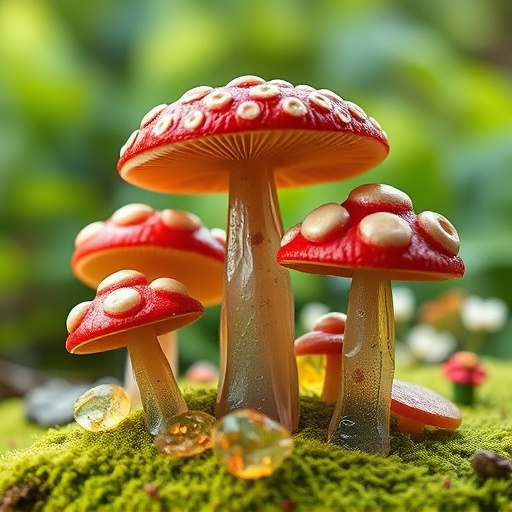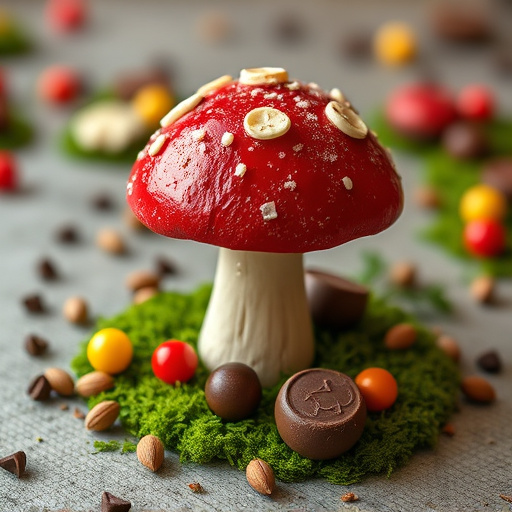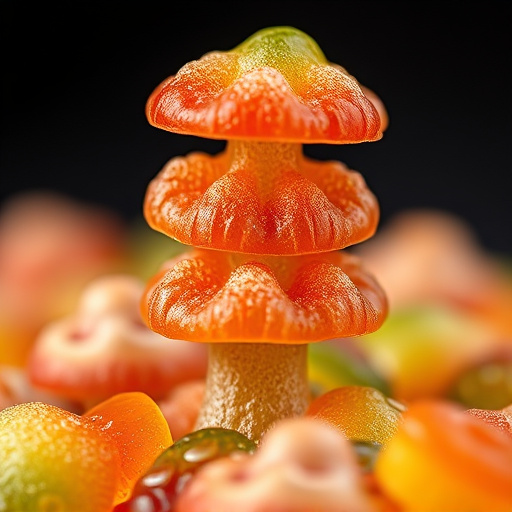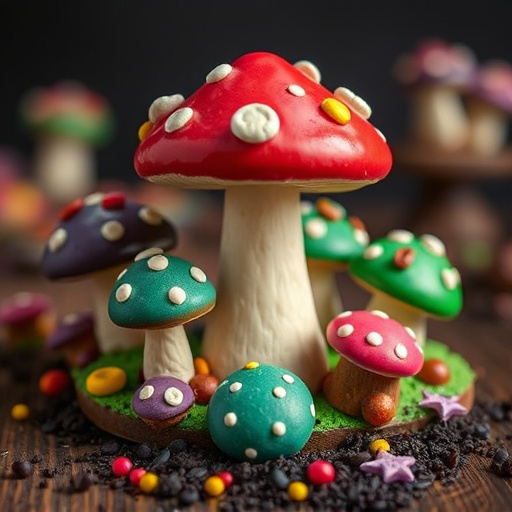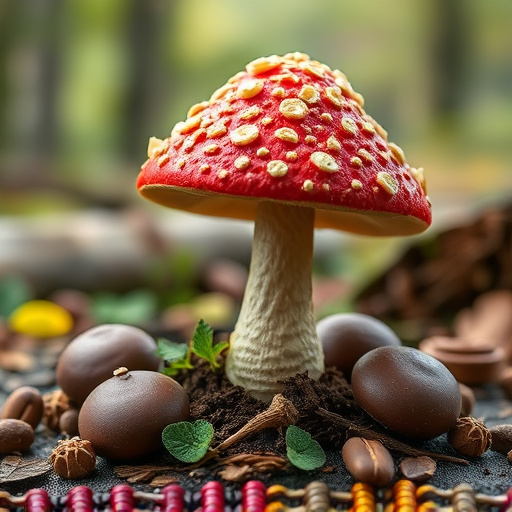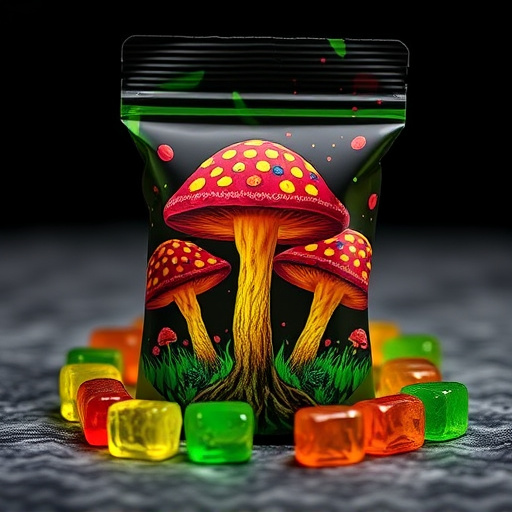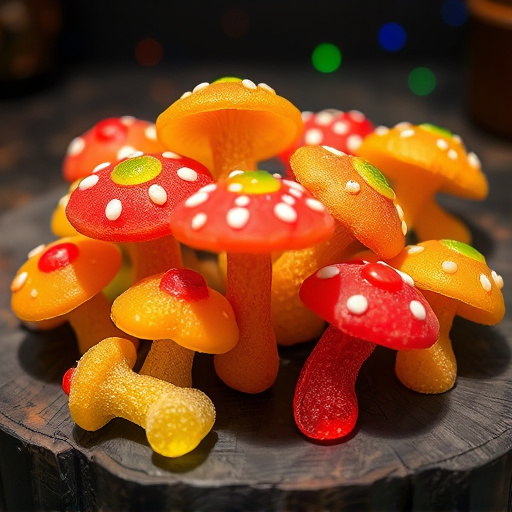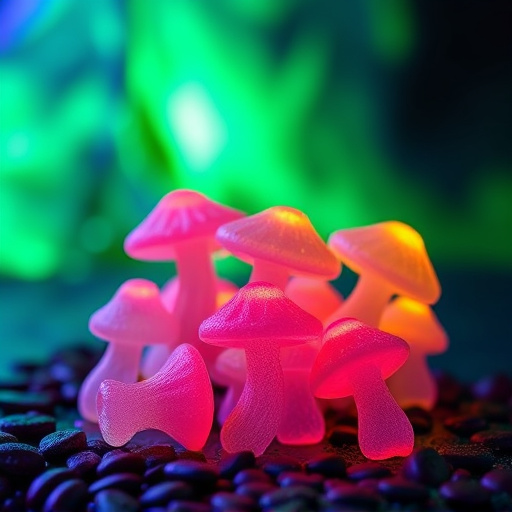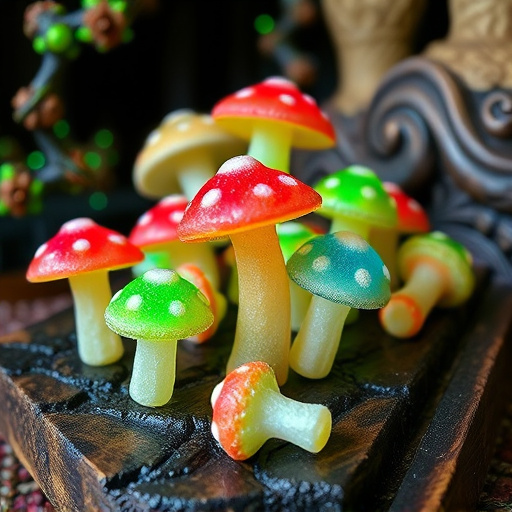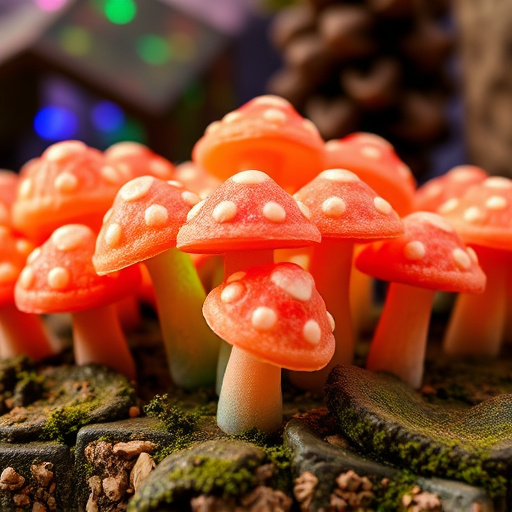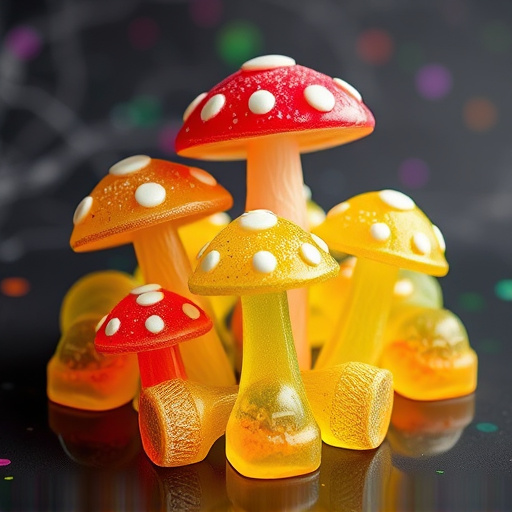Magic Mushroom Gummies represent a modern, controlled approach to consuming psilocybin, offering therapeutic benefits for mental health through increased neural connectivity and creativity. As an edible form of traditional magic mushrooms, these gummies democratize access to psychedelic therapy, but individual reactions vary; responsible use involves low doses in a safe environment.
“Uncover the intriguing world of Magic Mushroom Gummies: a modern twist on traditional psychedelics. These innovative treats infuse the powerful compounds found in magic mushrooms into a delicious, gummy form. In this article, we explore the science behind Magic Mushroom Gummies and their impact on neural connectivity. From potential therapeutic benefits to risks, discover what makes these gummies a fascinating subject of study and discussion in the realm of psychedelic research.”
- What Are Magic Mushroom Gummies?
- How Do Magic Mushroom Gummies Affect Neural Connectivity?
- The Potential Benefits and Risks of Consuming Magic Mushroom Gummies
What Are Magic Mushroom Gummies?
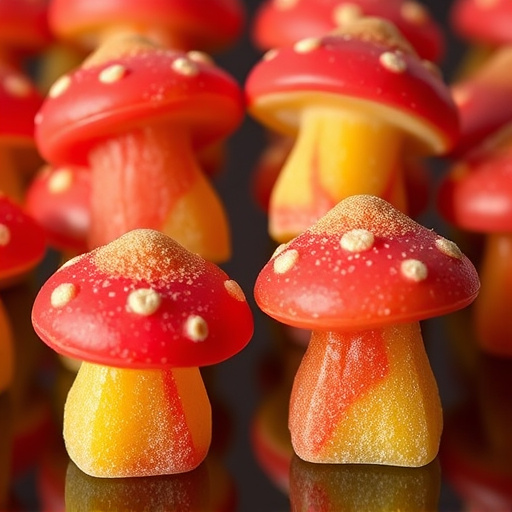
Magic Mushroom Gummies are a modern twist on traditional psychedelic experiences, offering a convenient and discrete way to consume psilocybin, the active compound found in magic mushrooms. These gummies are designed to provide a controlled dose of psilocybin, allowing users to potentially unlock enhanced creativity, improved mood, and increased neural connectivity. By infusing psilocybin into delicious gummy bears or other sweet treats, consumers can enjoy a unique sensory experience with minimal preparation or ritual.
The concept behind these gummies is not just about getting high; it’s about harnessing the potential therapeutic benefits of magic mushrooms. Research suggests that psilocybin can facilitate altered states of consciousness that promote introspection and neural plasticity, leading to long-lasting positive effects on mental health and well-being. Magic Mushroom Gummies aim to democratize access to these potential benefits, making psychedelic therapy more accessible and appealing to a wider audience.
How Do Magic Mushroom Gummies Affect Neural Connectivity?
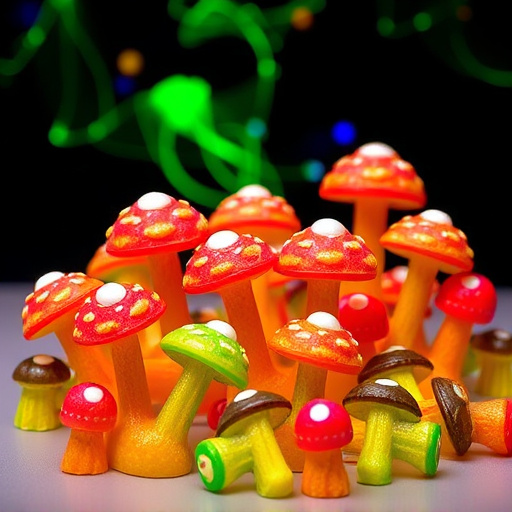
Magic Mushroom gummies, like their traditional counterparts, contain psilocybin, a compound known for its psychotropic effects. When consumed, psilocybin is metabolized into psilocin, which interacts with serotonin receptors in the brain, particularly those involved in perception and mood regulation. This interaction isn’t just about altering consciousness; it’s a complex process that can significantly influence neural connectivity.
Research suggests that psilocin has neuroplastic effects, meaning it can modulate the connections between different neurons. It does this by enhancing communication between various regions of the brain, often leading to altered states of consciousness and heightened creativity. These changes in neural connectivity may underlie the reported experiences of enhanced empathy, spiritual insights, and profound personal reflections associated with magic mushroom use.
The Potential Benefits and Risks of Consuming Magic Mushroom Gummies
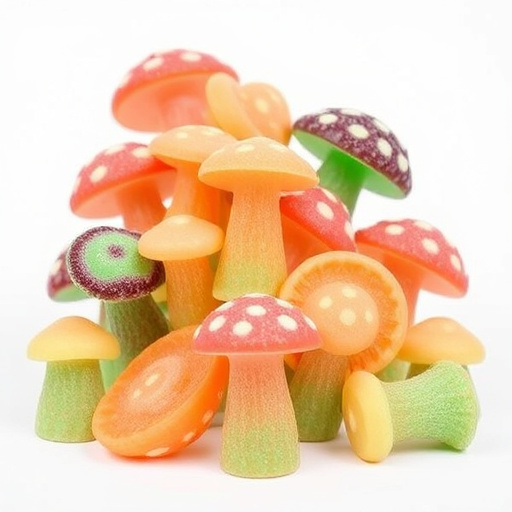
Magic mushroom gummies are a modern twist on traditional psilocybin mushrooms, offering a convenient and potentially therapeutic way to experience their effects. These edibles contain extracted compounds from magic mushrooms, typically psilocybin or psilocin, which are known for their mind-altering properties. One of the most discussed benefits is their potential to enhance neural connectivity in the brain. Research suggests that psilocybin can promote neuroplasticity, allowing for new neural pathways and connections to form, leading to increased creativity, improved mood, and a deeper sense of well-being.
However, alongside these potential advantages, there are risks associated with consuming magic mushroom gummies. As with any substance, individual reactions vary, and some users may experience anxiety, paranoia, or intense visual disturbances. Long-term effects are still being studied, but it’s essential to approach these compounds with caution. Responsible use involves starting with low doses and ensuring an environment where one feels safe and supported during the experience.
Magic mushroom gummies represent a modern twist on traditional psilocybin-containing mushrooms, offering a convenient and potentially therapeutic way to explore mental states. Understanding their impact on neural connectivity reveals promising benefits, such as enhanced creativity, improved mood, and reduced anxiety. However, like any psychedelic substance, they carry risks, including potential adverse reactions and the need for proper context and preparation. Balancing the promise of improved well-being with caution is key when considering the role of Magic Mushroom Gummies in promoting mental health and self-exploration.
